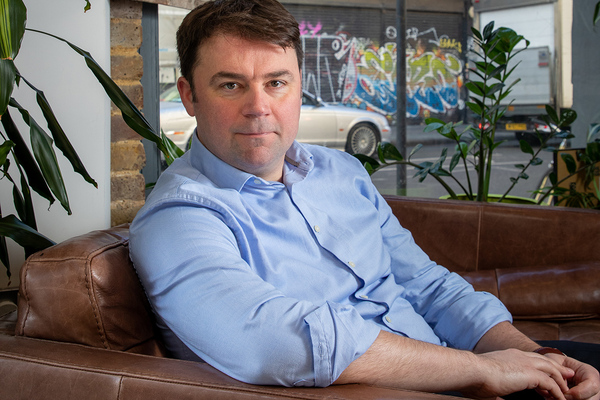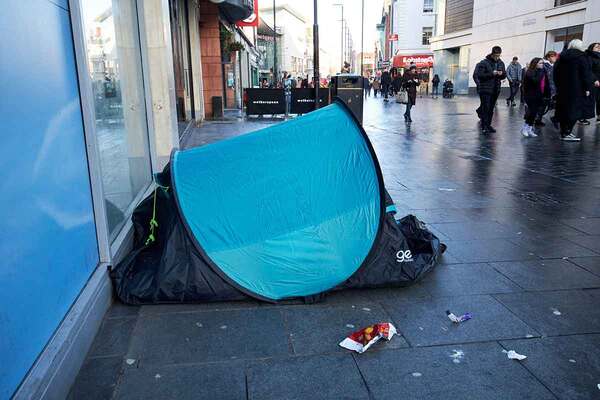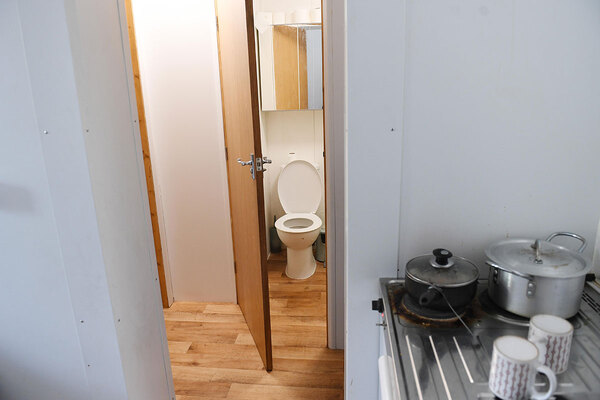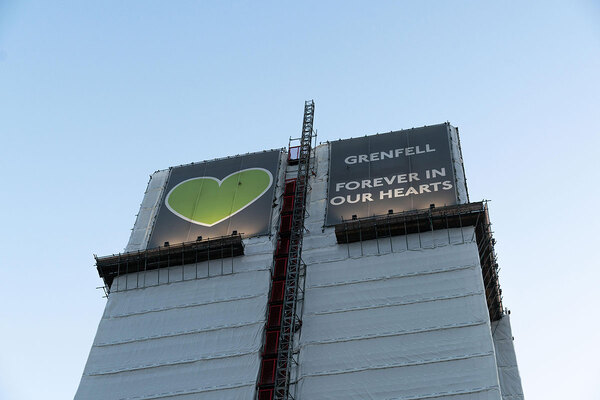You are viewing 1 of your 1 free articles
Homelessness services face ‘funding cliff edge’, charities warn
Frontline services for people sleeping rough could face cuts because of a looming “cliff edge” in vital funding, a group of homelessness charities has warned.
An open letter to the government from 23 organisations, led by St Mungos, has urged the government to extend and uplift funding for the Rough Sleeping Initiative (RSI), which is due to end next March.
The letter comes as chancellor Rachel Reeves prepares to unveil her maiden Budget at the end of this month.
The charities pointed out that around £500m in RSI funding, which provides targeted support for frontline services, has been allocated to local authorities, charities and other organisations over the past three years. However, they warned that the future of the funding stream remains in doubt.
The letter urges ministers to “at least” maintain investment in the “lifeline of services” for people who end up on the streets. The groups warn that without it, rough sleeping “could quickly spiral out of control from the already historically high numbers”.
It comes amid a deepening homelessness crisis in the UK, with the latest government statistics showing an 8% year-on-year rise in the number of households facing homelessness and a sharp rise in the number of families with children staying in temporary accommodation.
Labour’s manifesto pledged to “build on the lessons of the past” with a cross-government strategy to end homelessness, working with local councils and mayors.
It also promised to tackle housing supply shortages by building 150,000 new council and social homes a year within five years.
The letter, which is signed by organisations including Shelter, AKT, Centrepoint and the Chartered Institute of Housing, said that while the sector “supports” the government’s desire to shift to a more prevention-focused approach, a transition period will be needed.
“Without a transition period, and with only months until RSI funding is due to end, there would be a significant impact on clients, staff and the financial resilience of the homelessness sector,” it said.
The letter also highlighted the fact that many local authorities are already facing acute financial pressures, which will only ramp up without RSI support.
It pointed out that councils in London are spending £90m per month on temporary accommodation for people experiencing homelessness, which is up almost 40% from 2023 figures.
RSI covers around a third of the cost of St Mungo’s services, totalling around £17.6m, and enabling it to provide Housing First in places such as Westminster, giving rough sleepers a home alongside wraparound support.
Emma Haddad, chief executive of St Mungo’s, said: “Without vital sources of funding like the Rough Sleeping Initiative, yet more people will experience the trauma of homelessness, and our collective aim of ending homelessness for good will be pushed even further away.
“As we approach the Budget, leading voices in the homelessness and housing sectors are asking the government to protect RSI funding so that homelessness services can continue, and no one faces a life of uncertainty without a home.”
The RSI policy was implemented in 2018 with funding packages of different lengths, but the latest package of funding started in 2022 and is due to end in April 2025.
In January, the government allocated an extra £17m to councils to help house people sleeping rough. Within the package, £4m was allocated to local authorities facing “the greatest pressures” in rough sleeping in England.
Sign up for our homelessness bulletin
Already have an account? Click here to manage your newsletters












